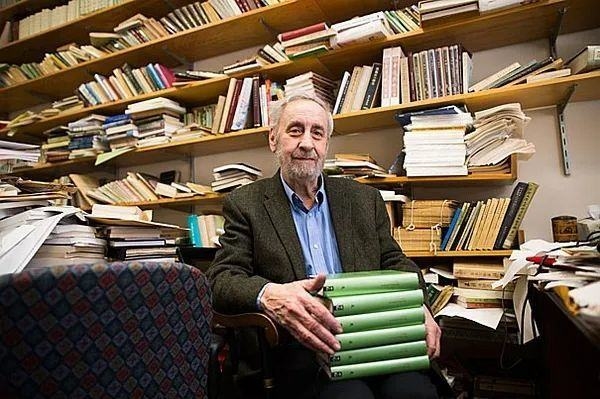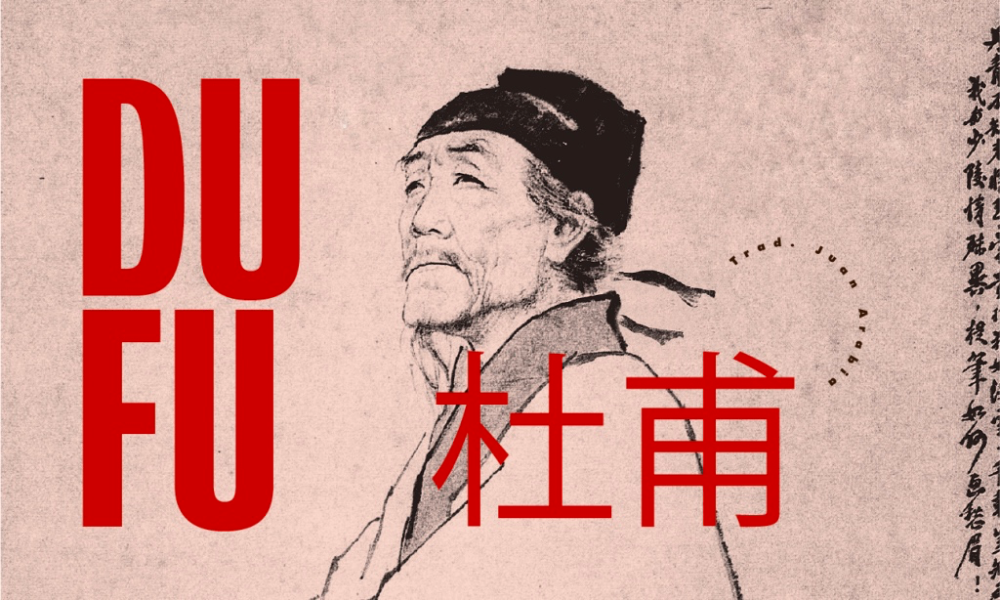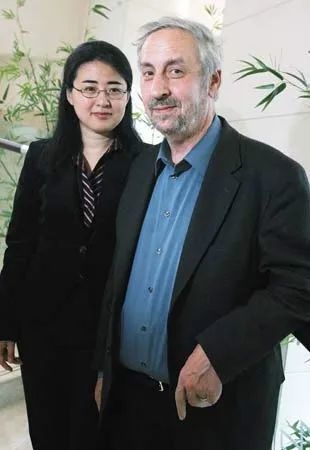译者|哈佛大学教授宇文所安翻译的杜甫的诗
 2021-03-17
2021-03-17

本文转自:丁老师小学堂

Du Fu: China’s Greatest Poet
杜甫生于712年,见证了盛唐时代的衰落;当叛军占领首都,洪水和饥荒袭来,他被迫举家逃难。这些磨难构建了杜甫诗作很大一部分,他的诗作被哈佛大学汉学家宇文所安视作“当时中国百姓的心声”。
宇文所安说:“我们不仅有但丁,有莎士比亚,还有杜甫。这些诗人创造了评判伟大诗歌的标准。”
值得一提的是,杜甫诗歌全集的英语全译本于2016年出版(The Poetry of Du Fu《杜甫诗集》)。这一庞大的工程由哈佛大学汉学家宇文所安(Stephen Owen)历经八年的埋头耕耘完成,收录了杜甫近1400首尚存于世间的诗作、3000页、共六卷、重九磅,是学界关于杜甫作品第一次完整的英文翻译。

怀抱六卷《杜甫诗集》译本的宇文所安
让我们来欣赏几首宇文所安教授翻译的杜甫诗词吧:
春望
国破山河在,城春草木深。
感时花溅泪,恨别鸟惊心。
烽火连三月,家书抵万金。
白头搔更短,浑欲不胜簪。
View in Spring
The state broken, its mountains and rivers remain, the city turns spring, deep with plants and trees.
Stirred by the time, flowers, sprinkling tears, hating parting, birds, alarm the heart.
Beacon fires stretch through three months, a letter from family worth ten thousand in silver.
I’ve scratched my white hair even shorter, pretty much to the point where it won’t hold a hatpin.
登高
风急天高猿啸哀,渚清沙白鸟飞回。
无边落木萧萧下,不尽长江滚滚来。
万里悲秋常作客,百年多病独登台。
艰难苦恨繁霜鬓,潦倒新停浊酒杯。
Climbing the Heights
The wind blows hard, the heavens, high, gibbons howl in lament, isles clear, sands white, where birds turn in flight.
Endless trees shed their leaves that descend in the whistling wind, unending, the Long River comes on churning.
Grieving for fall across ten thousand leagues, always a traveler, often sick in this century of life I climb the terrace alone.
In hardship I bitterly resent these tangled, frost-white locks, down and out, I recently quit cups of thick ale.
蜀相
丞相祠堂何处寻,锦官城外柏森森。
映阶碧草自春色,隔叶黄鹂空好音。
三顾频烦天下计,两朝开济老臣心。
出师未捷身先死,长使英雄泪满襟。
Shu’s Minister
The shrine hall to the Minister, where can it be found?—outside the walls of Brocade City, where the cypress tree stands dense.
Half hiding the stairs, sapphire grasses take on the colors of spring, yellow orioles beyond the leaves give fine notes for naught.
Thrice called on, urged repeatedly: his plans for all the world. for two reigns, founding and sustaining: an old officer’s heart.
Ere “the army sent forth” was victorious, the man himself died, it always makes bold-spirited men fill their clothes with tears.

月夜
今夜鄜州月,闺中只独看。
遥怜小儿女,未解忆长安。
香雾云鬟湿,清辉玉臂寒。
何时倚虚幌,双照泪痕干。
Moonlit Night
The moon tonight in Fuzhou, she alone watches from her chamber.
I am moved by my children far off there, who don’t yet know to remember Chang’an.
Fragrant fog, her coils of hair damp, clear glow, her jade-white arms are cold.
When will we lean at the empty window, both shone upon, the tracks of our tears dried?
石壕吏
暮投石壕村,有吏夜捉人。
老翁逾墙走,老妇出门看。
吏呼一何怒,妇啼一何苦。
听妇前致词,三男邺城戍。
一男附书至,二男新战死。
存者且偷生,死者长已矣。
室中更无人,惟有乳下孙。
有孙母未去,出入无完裙。
老妪力虽衰,请从吏夜归。
急应河阳役,犹得备晨炊。
夜久语声绝,如闻泣幽咽。
天明登前途,独与老翁别。
The Officer at Stone Moat
At dusk I put up at Stone Moat village, a clerk was catching people by night.
An old man went over the wall and ran off, his wife came out the gate to watch.
How angrily the clerk shouted, and how bitterly the woman wept!
I listened as the woman pleaded with him:“My three sons were serving at Ye,
from one son a letter just arrived, the other two just died in battle.
The survivor has managed to get by with his life awhile, the dead ones are gone forever.
There is no one else in the house, just a grandson who still is nursing.
With this baby his mother has not left, she goes around with a tattered skirt.
Though as an old woman my strength is failing, please let me go off with you tonight.
For the Heyang conscription to answer the crisis, I can still prepare their morning meals.
As the night drew on, the sound of talking stoppedand I seemed to hear sobbing choked back.
At daybreak I set out on the road ahead and took leave of the old man alone.

宇文所安田晓菲夫妇





